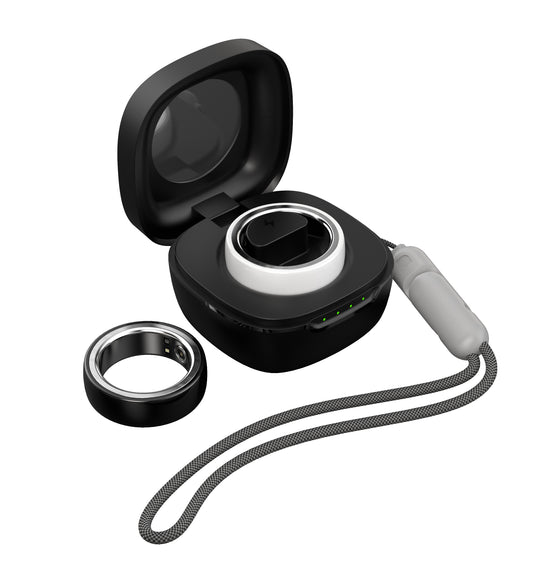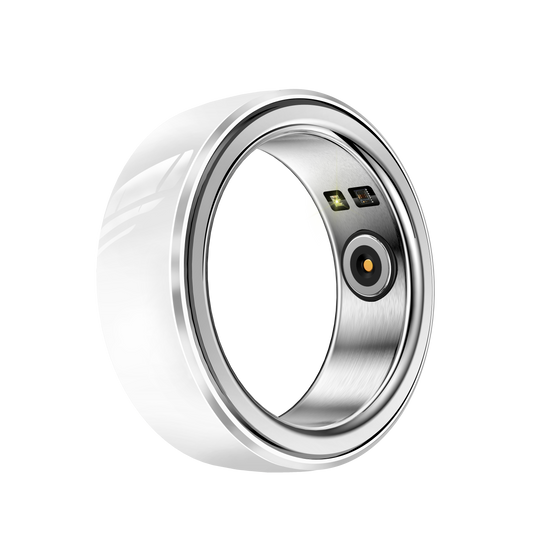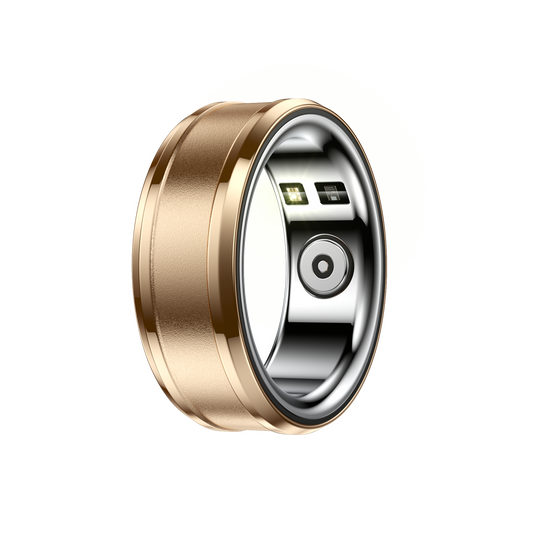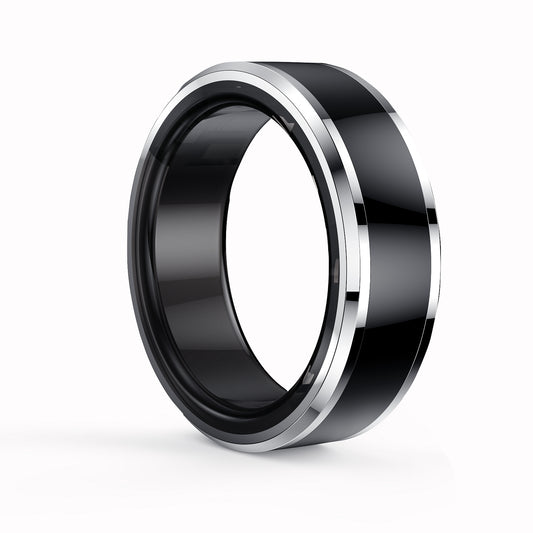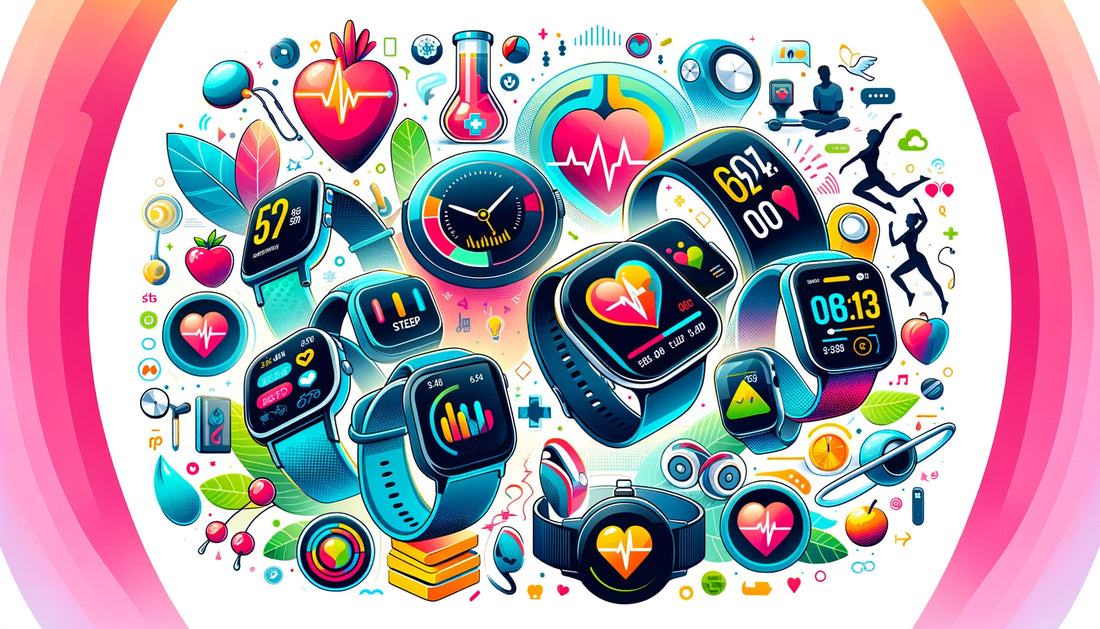
How Wearable Tech is Revolutionizing Your Health & Wellness
Share
Wearable technology has exploded in popularity in recent years, evolving from simple fitness trackers to sophisticated devices that monitor a wide range of health metrics. From tracking your heart rate and sleep patterns to monitoring activity levels, these innovative gadgets are transforming the way we approach our health and wellness. This blog post delves into the exciting world of wearable tech, exploring how it's revolutionizing how we take care of ourselves. We'll explore how wearables empower individuals to gain valuable insights into their health data, take a proactive approach to managing their well-being, and even address aspects of mental and emotional health. So, whether you're a seasoned fitness enthusiast or simply looking for ways to improve your sleep hygiene, wearable tech offers a range of tools to help you achieve your health goals. Let's dive in and discover how these tiny devices are making a big impact on our overall health and wellness.
Tracking & Monitoring: Unveiling Your Body's Data Story
One of the most fundamental ways wearable tech is revolutionizing health and wellness is through its ability to continuously track and monitor key health metrics. Gone are the days of relying solely on occasional doctor visits or subjective feelings to gauge your health. Today's smartwatches, fitness trackers, and even some clothing integrate advanced sensors that capture a wealth of data about your body's inner workings. These sensors can monitor everything from your heart rate and blood oxygen levels (Apple Watch Series 8) to your sleep stages and daily activity levels.
This constant stream of data empowers individuals to gain a deeper understanding of their overall health and well-being. Imagine being able to visualize your heart rate variability throughout the day, a metric that can indicate stress levels and potential cardiovascular risks. With wearables, this information is readily available at your fingertips, allowing you to identify patterns and make informed decisions about your lifestyle choices. For example, noticing a consistent dip in your sleep quality tracked by your wearable might prompt you to re-evaluate your sleep hygiene habits or consult a doctor for potential underlying issues.
Even more importantly, wearable tech can play a crucial role in preventative healthcare. By continuously monitoring your health data, wearables can potentially detect irregularities early on, allowing for timely intervention. For instance, some smartwatches, like the Fitbit with irregular heart rhythm notifications, can monitor for atrial fibrillation, a common heart rhythm disorder. Early detection of such conditions can make a significant difference in treatment outcomes and overall health.
The ability to track and monitor health data through wearables is not just about identifying problems; it's about gaining valuable insights into your body's unique story. This information empowers individuals to take a proactive approach to their health and well-being, which we'll explore further in the next section.
Proactive Management: Taking Control of Your Health Journey
Wearables aren't just about passively collecting data; they're powerful tools for setting and achieving personalized health goals. Many wearables come equipped with goal-setting features that allow you to define specific objectives, such as increasing your daily step count or improving your sleep duration. These goals can be tailored to your individual needs and fitness level, making them both achievable and motivating.
Furthermore, wearables can be instrumental in promoting healthy habits that contribute to overall well-being. For instance, activity trackers can provide gentle nudges throughout the day to encourage you to move more. The constant reminder to get up and take a few steps can significantly increase daily activity levels, particularly for those with sedentary lifestyles. similarly, some wearables offer advanced sleep tracking features that provide insights into your sleep quality. This information can be used to develop better sleep hygiene habits, such as maintaining a consistent sleep schedule or establishing a relaxing bedtime routine.
Wearable tech also plays a growing role in chronic disease management. For individuals with diabetes, continuous glucose monitors (CGMs) like the Dexcom G6 can offer real-time blood sugar readings, allowing for better management of glucose levels and medication adjustments. Smartwatches with built-in ECG capabilities can be particularly beneficial for those with heart conditions, enabling them to monitor their heart rhythm for potential irregularities. By providing continuous health data and promoting healthy behaviors, wearables empower individuals with chronic conditions to take a more active role in managing their health.
In essence, wearable technology acts as a personalized health coach, constantly monitoring your progress and providing valuable feedback to help you stay on track towards your wellness goals. This proactive approach to health management is a significant shift from traditional reactive methods, empowering individuals to take control of their health journey.
Mental & Emotional Wellbeing: A Holistic Approach to Health
The benefits of wearable tech extend beyond physical health and delve into the realm of mental and emotional well-being. While wearables may not directly measure emotions, they can provide valuable tools to help manage stress, a significant factor impacting mental health. Some smartwatches and fitness trackers incorporate stress tracking features that monitor physiological signs like heart rate variability and skin conductance, which can indicate stress levels. These insights can empower individuals to identify stressful situations and employ coping mechanisms like relaxation techniques or deep breathing exercises readily available on many wearable companion apps.
Furthermore, the sleep quality monitoring capabilities of wearables can indirectly impact mental health. As mentioned earlier, wearables like some of the smart rings, can track sleep stages and provide detailed reports on sleep quality. Chronic sleep deprivation is a well-known contributor to anxiety, depression, and other mental health issues. By monitoring sleep patterns and identifying potential disruptions, wearables can help individuals prioritize healthy sleep habits, leading to improved mental well-being.
Looking towards the future, wearable technology holds enormous potential for mental health interventions. Imagine a smart ring that not only tracks stress levels but also guides you through personalized mindfulness exercises or offers real-time anxiety management techniques. Several wearable companies are already exploring these possibilities, integrating mindfulness apps and biofeedback technologies into their devices. While these interventions are still in their early stages, they offer a glimpse into a future where wearables can play a more significant role in supporting mental health alongside traditional therapy and medication.
The Future of Wearable Tech: A Glimpse into a Personalized Health Revolution
The future of wearable technology is brimming with exciting possibilities that promise to further revolutionize how we approach health and wellness. One of the key trends is the integration of Artificial Intelligence (AI) into wearables. Imagine a smartwatch that can analyze your health data in real-time, providing personalized recommendations on exercise routines, sleep hygiene, or even dietary adjustments. Companies like Samsung, with their Galaxy Watch5's bioelectrical impedance analysis (BIA) sensor, are already paving the way for advanced body composition tracking, potentially allowing wearables to offer more comprehensive health insights.
Another exciting development is the continuous advancement in health monitoring capabilities. Researchers are exploring the potential for wearables to monitor everything from blood pressure (research by University of California, San Francisco) to blood sugar levels (prototype by MC10 Inc.) without the need for invasive procedures. These non-invasive monitoring features could significantly improve preventative healthcare by enabling early detection of potential health risks.
The convergence of these advancements points towards a future of personalized medicine, where wearables collect and analyze a wealth of individual health data. This data can then be used by healthcare professionals to create customized treatment plans and preventive measures tailored to each patient's unique needs. Wearable tech has the potential to transform healthcare from a reactive to a proactive approach, focusing on preventing illnesses before they occur.
Overall, the future of wearable technology is brimming with potential to empower individuals to take charge of their health and well-being. From personalized health coaching to non-invasive health monitoring, wearables are poised to play a central role in shaping the future of healthcare.
Conclusion
Wearable technology has emerged as a game-changer in the realm of health and wellness. By continuously tracking key health metrics, wearables empower individuals to gain a deeper understanding of their bodies and overall well-being. This data can be used to set personalized health goals, promote healthy habits like increased activity and improved sleep, and even play a role in managing chronic conditions. Furthermore, wearables are venturing into the domain of mental and emotional well-being, offering tools for stress management and potentially shaping the future of mental health interventions. Looking ahead, the integration of AI and advanced health monitoring capabilities holds enormous promise for personalized medicine and preventative healthcare.
It's important to acknowledge that wearable technology is still evolving, and there are limitations to consider. Data privacy remains a concern, as vast amounts of personal health information are collected by these devices. Battery life can also be a limiting factor, with some wearables requiring frequent charging. However, ongoing advancements are addressing these challenges, paving the way for a future where wearables seamlessly integrate into our lives.
The potential of wearable tech to empower individuals to take control of their health is truly remarkable. Imagine a world where you have access to real-time health insights, personalized coaching, and preventive measures at your fingerstips. Wearable technology is not a magic bullet, but it's a powerful tool that can revolutionize how we approach our health journey.
Have you already incorporated wearable technology into your life? Share your experiences and thoughts on wearables in the comments below! Curious to explore some of the wearables or apps mentioned in this post? Check out the links below for further information:
Some other choice of wearable on Amazon :
- Apple Watch Series 9
- Fitbit Sense
- Samsung Galaxy Watch Active2
- Withings ScanWatch
- Dexcom G6: Dexcom G6
- Oura Ring
FAQs
1. Are wearables safe to use?
Most wearables are safe for healthy adults. However, if you have any underlying health conditions, it's always recommended to consult your doctor before using a wearable device, particularly one with advanced health monitoring features.
2. How do I choose the right wearable for me?
There are a variety of wearables on the market, each with its own strengths and functionalities. Consider your health goals and priorities when choosing a wearable. Do you prioritize fitness tracking, sleep monitoring, or advanced health metrics? Battery life, budget, and compatibility with your smartphone are also important factors to consider.
3. What are the privacy concerns surrounding wearable tech?
Wearables collect a significant amount of personal health data. It's crucial to choose reputable brands with strong data security practices. Always be sure to review the privacy policies of any wearable device or app before using them.
4. Can wearables replace traditional healthcare?
Wearables are valuable tools for monitoring your health and promoting healthy habits, but they should not be seen as a replacement for traditional healthcare. Regular doctor visits and professional medical advice remain essential for maintaining good health.
5. What's the future hold for wearable technology?
The future of wearable tech is bright! We can expect to see even more advanced health monitoring capabilities, integration with AI for personalized health insights, and a growing role in mental health interventions.
